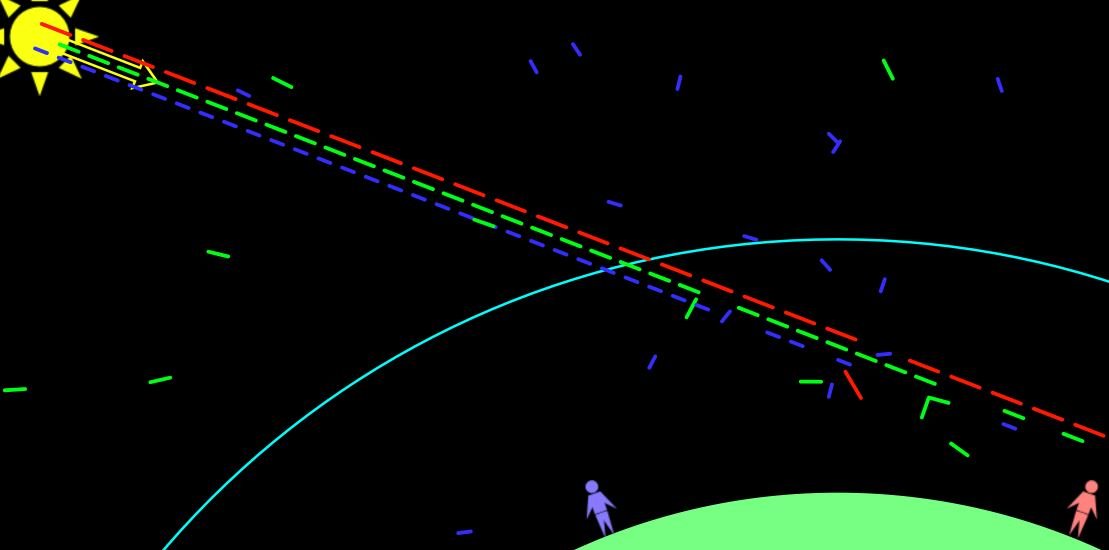Can learning science make you happy??
Every now and then something will catch your attention and have a strong physiological effect on you. Your eyes will open a little wider, your pupils will dilate, your mouth will drop open and you may gasp or say “wow!”. The word for this emotional response is awe. The thing which caused the effect is, by definition, awesome and you are awestruck. We have probably all experienced this before and it is quite pleasant. One thing is for sure, in that moment you are nowhere but right there, present in what is happening. You are not distracted by your many worries or desires; you are not thinking of things that have happened or things which might yet happen. You are present. A slightly less extreme emotional response is delight. It is much the same thing, but just less so.
There has been plenty of research on the effect of experiencing these emotions on our well-being, but I think most of us already know, when we think about it, that it would undoubtedly make us feel quite good. In any case, feel free to read about one study here.
Space is awesome!
So, how do we bring more awe and delight into our life? Of course, if we have the money and opportunity we can go on exciting and adventurous holidays, but you could also just go on more walks outside and you could … learn a little science!
Without much of a scientific understanding of the world, you may be walking down a street on nice day and notice the blue sky and the trees swaying in the breeze, and it is nice, but hardly awesome, right? Now throw in a little science and you are suddenly awestruck much of this. Look up at the night sky and you see little pinpricks of white light in a blanket of black. But it is in fact awesome to think that each one of those pinprick of lights are in fact stars many times larger than our entire planet which is already larger than we realise. This is something you come to realise when you do a bit of travelling locally and abroad. Here is a video giving you some idea of the size of things out there in space.
Seeing is awesome!
You can even focus on the process by which we see in the first place. Light, as it turns out is just one very small part of what we call the electromagnetic spectrum. The part that we can see with our eyes is called visible light because we can see it. You may have heard of some other electromagnetic waves such as x-rays, ultra-violet, infra-red, micro-waves and radio-waves. A pretty cool experiment I often show students uses the camera function on your mobile phone and a TV remote control. Remote controls usually use infra-red radiation which is invisible to us to communicate with the devices you are controlling. If you look the remote control through your phone camera and press a button on the remote control, you should see a flash of light being emitted from the end of the remote which you point at the device, but if you look at the remote with your eyes you don’t see anything! And then the light that we can see, how do we see it? What actually happens in our eyes and brains to enable us to have an image of the world projected onto the canvas of our minds? The more you question your experiences, the more fascinating and awesome life becomes! Here are a few videos and simulations to help answer some of the questions I have just posed.
Resource type and link
What does it teach?
Shows how the iris works to control the amount of light we take into our eyes.
Why the sky is blue, and the sun is yellow
The other types of electromagnetic waves in the spectrum and how to they compare with visible light
How our eyes combine red, blue and green to make the rest of the colours we see.
How TVs and computer monitors use red, green and blue LEDs to produce all other colours.
So, I find that the more I learn about the world and how it all works, the more often I can bring about a sense of delight and awe simply by calling to mind what I have previously learnt and reflect on how amazing it is. In this way, I find I experience awe and delight on a regular basis, and it makes me pretty happy! 😊









